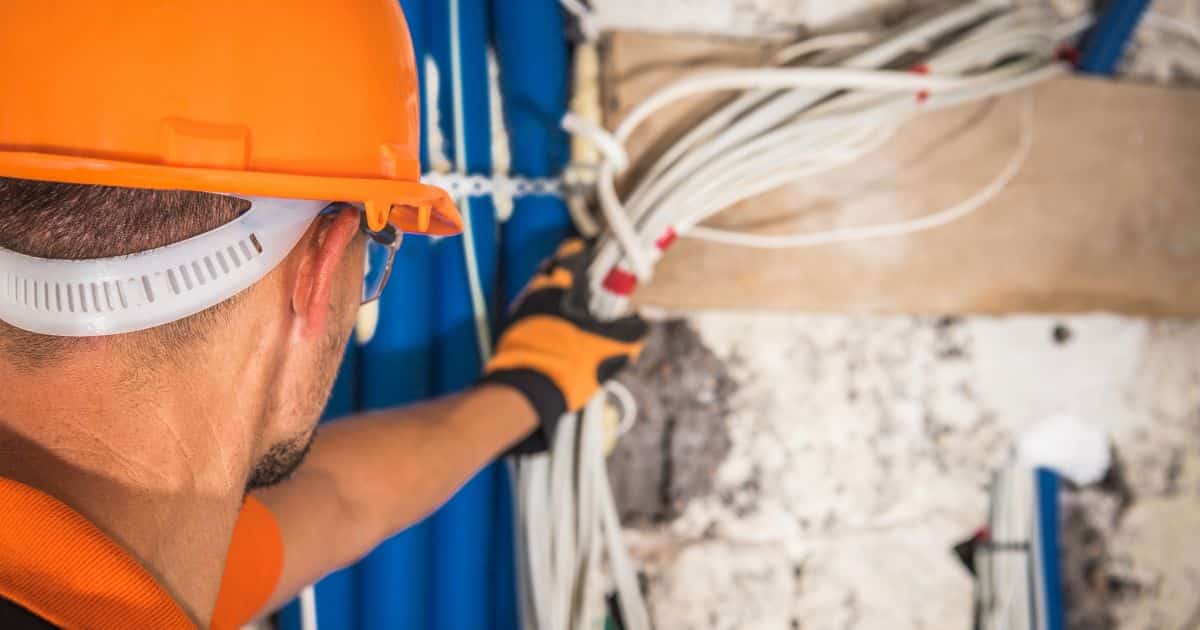
Electricity powers our world, but it poses inherent risks in the workplace. Across all industries, electrical accidents cause an estimated 400 workplace deaths every year in the United States. The construction industry alone accounts for over 52 percent of all electrical fatalities in the United States. Additionally, thousands of workers are injured every year when exposed to electricity.
Depending on the wattage and time of exposure, an electrical injury can range from minor burns, muscle paralysis, or severe heart problems and death. Fortunately, most electrical injuries are preventable, especially if you can identify what causes an electrical hazard:
- Circuit breaker failure: A circuit breaker is designed to trip when a circuit is overloaded. When a breaker fails, an electrical hazard is likely to occur.
- Insufficient insulation: Insulation used to protect from shock or short circuits can deteriorate over time, either by moisture, normal wear and tear, or rodents.
- Damaged wiring: Frayed and exposed wires and cracked insulation can lead to an electrical hazard.
- Improper use of extension cords: Overloading an extension cord with actions can cause an overheating and electrical fire.
- Inadequate maintenance: Proper maintenance, such as routine inspections and implementing safety procedures, is crucial to preventing electrical hazards.
Identifying the top electrical hazards in the workplace can raise awareness of the serious risks of electrocution injuries, which is crucial to maintaining a safe work environment.
Faulty Wiring
One of the most common electrical hazards in the workplace is faulty wiring and connections. Over time, wear and tear can lead to frayed or damaged wires, increasing the risk of electrical fires and shocks. Poorly connected or outdated wiring systems can also result in power fluctuations, creating an unstable electrical environment.
Regular inspections and maintenance of electrical systems are essential to mitigate this hazard. Employers should invest in professional electricians to assess wiring conditions, repair or replace damaged components, and ensure compliance with safety standards.
Overloaded Circuits and Equipment
Overloading circuits and equipment is a prevalent electrical hazard that often stems from the demand for increased power in a workspace. Plugging too many devices into a single outlet or circuit can lead to overheating, electrical fires, and damage to equipment.
Implementing proper load management strategies, such as using power strips with built-in circuit breakers and avoiding daisy-chaining extension cords, can help prevent overloading. Employers should also provide adequate training to employees on the safe use of electrical outlets and equipment.
Exposed Electrical Parts
Exposed electrical parts directly threaten workers as they can encounter live wires or energized components. This hazard is particularly common in older workplaces where electrical systems may not have been updated to meet current safety standards.
Installing proper enclosures, covers, and barriers around electrical equipment and wiring can help prevent accidental contact. Additionally, workers should be trained to identify and report any exposed electrical parts immediately, ensuring a swift resolution to potential hazards.
Inadequate Grounding
Proper grounding is essential to maintaining the safety of electrical systems. Inadequate grounding can result in the buildup of static electricity, increasing the risk of electrical shocks and equipment malfunctions. This hazard is particularly relevant in workplaces where sensitive electronic equipment is used.
Regular testing of grounding systems and installing grounding devices, such as grounding rods and conductive flooring, can mitigate this risk. Employers should also prioritize employee education on the importance of proper grounding and the potential consequences of inadequate measures.
Our Downingtown Workers’ Compensation Lawyers at Wusinich, Sweeney & Ryan, LLC Advocate for Workers Injured by Electrical Hazards
If you have been exposed to an electrical hazard at work, you may face massive medical bills during your recovery and will likely need time off work. For legal help, speak with our skilled Downingtown workers’ compensation lawyers at Wusinich, Sweeney & Ryan, LLC. Call 610-594-1600 or complete our online form to schedule a free consultation. Located in Exton, Pennsylvania, we serve clients in Downingtown, West Chester, Exton, Coatesville, Phoenixville, Malvern, Lyndell, Wagontown, Uwchlan Township, Parkesburg, Chester Springs, Lancaster County, Reading, and Morgantown.




